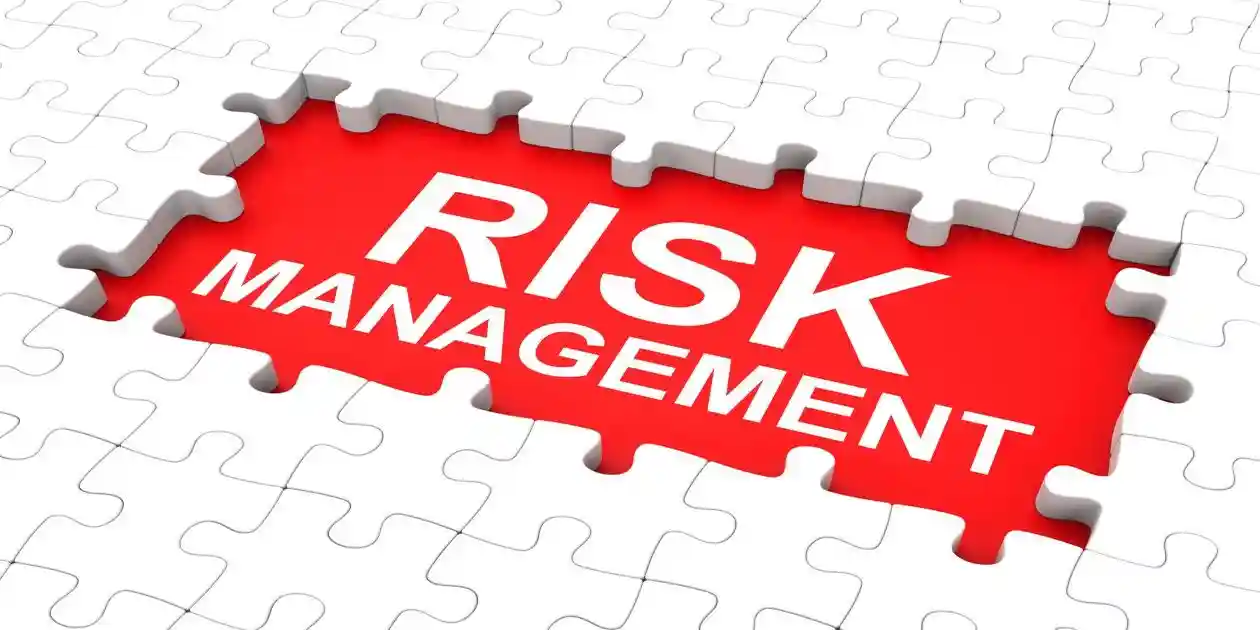Understanding Corporate Governance: Definition and Importance
- Corporate Governance: Refers to the system of rules, practices, and processes by which a company is directed and controlled. It involves balancing the interests of a company’s many stakeholders, such as shareholders, management, customers, suppliers, financiers, government, and the community. In essence, it provides the framework for attaining a company’s objectives and encompasses practically every sphere of management, from action plans and controls to performance measurement and corporate disclosure.
- Importance: The importance of Corporate Governance cannot be overstated, especially in today’s rapidly evolving business environment. Good governance ensures that companies operate in a transparent and accountable manner, which is crucial for gaining investor trust and enhancing corporate reputation. Furthermore, it helps in mitigating risks, avoiding scandals, and improving overall firm performance. By adhering to sound governance practices, companies can achieve sustainable growth and long-term value creation.
- Essential: Moreover, effective Corporate Governance is essential for maintaining the integrity of business operations and financial reporting. It serves as a safeguard against mismanagement and fraud, thereby protecting the interests of stakeholders. As we move into 2025, the focus on governance is likely to intensify, with stakeholders increasingly demanding more accountability and ethical conduct from corporations.
The Role of Internal Controls in Corporate Governance
- Internal controls are the mechanisms, rules, and procedures implemented by a company to ensure the integrity of financial and accounting information, promote accountability, and prevent fraud. They form the backbone of Corporate Governance, providing the necessary checks and balances to ensure the company’s operations are effective and efficient.
- In the context of Corporate Governance, controls serve several key functions. They ensure compliance with laws and regulations, help protect assets from theft and misuse, and enhance the reliability of financial reporting. Strong controls can also improve operational efficiency by ensuring that business processes are streamlined and effective. In 2025, organizations must prioritize strengthening their controls to cope with the complexities of modern business operations.
- You need to understand that effective controls are not just about compliance; they are about creating a culture of accountability and responsibility. By fostering a robust internal control environment, you can minimize risks and enhance the overall governance framework of your organization. This, in turn, builds stakeholder confidence and supports sustainable business success.
Common Forms of Accounting Fraud and Their Impact
- Accounting fraud is a critical issue that undermines Corporate Governance and can have devastating effects on an organization. It involves the intentional manipulation of financial statements to create a false impression of a company’s financial health. Common forms of accounting fraud include overstating revenues, understating expenses, and misappropriating assets.
- The impact of accounting fraud is far-reaching. It not only leads to financial losses but also erodes investor trust and damages a company’s reputation. The consequences can include legal penalties, loss of market share, and, in severe cases, bankruptcy. As we approach 2025, vigilance against accounting fraud is paramount. You must ensure that robust detection and prevention mechanisms are in place to safeguard your organization against fraudulent activities.
- To combat accounting fraud effectively, you should focus on creating a transparent reporting environment, implementing stringent audit processes, and fostering an ethical corporate culture. Training employees about the risks and signs of fraud can also be a preventative measure. By addressing these issues head-on, you can protect your organization and uphold the integrity of your Corporate Governance framework.
Key Regulatory Bodies Overseeing Corporate Governance
- Regulatory bodies play a crucial role in overseeing Corporate Governance and ensuring compliance with legal standards. They set the rules that companies must follow to protect stakeholders’ interests and maintain market integrity. Some of the key regulatory authorities include the Securities and Exchange Commission (SEC), the Financial Reporting Council (FRC), and the International Financial Reporting Standards (IFRS) Foundation.
- Each regulatory body has specific mandates and responsibilities. For instance, the SEC regulates the securities industry and enforces federal securities laws to protect investors and maintain fair, orderly, and efficient markets. The FRC oversees corporate reporting and governance standards, while the IFRS Foundation develops global accounting standards to ensure transparency and comparability in financial statements. Understanding the role of these bodies is essential for maintaining compliance and enhancing Corporate Governance.
- As you navigate the complexities of Corporate Governance in 2025, staying informed about regulatory updates and changes is crucial. Engaging with these bodies and aligning your governance practices with their guidelines can help you reduce risks and enhance your organization’s credibility. By doing so, you can build a solid governance framework that supports long-term success and growth.
The Relationship Between Corporate Governance and Securities Litigation
- Securities litigation is closely linked to Corporate Governance, as it often arises from failures in governance practices. It involves legal action taken by investors against a company for alleged violations of securities laws, such as misrepresentation of financial information or insider trading. Poor governance can lead to securities litigation, resulting in significant financial losses and reputational damage.
- Understanding the relationship between Corporate Governance and securities litigation is vital for mitigating legal risks. By implementing strong governance practices, you can reduce the likelihood of securities violations and protect your organization from costly litigation. This includes ensuring accurate and transparent financial reporting, maintaining effective controls, and fostering a culture of compliance and ethical behavior.
- As we look to 2025, the focus on Corporate Governance and securities litigation is likely to intensify, with greater scrutiny from regulators and stakeholders. By proactively addressing potential governance issues and taking corrective actions, you can minimize the risk of litigation and safeguard your organization’s interests.
Best Practices for Effective Corporate Governance in 2025
To excel in Corporate Governance in 2025, adopting best practices is essential. These practices can help you create a robust governance framework that supports sustainable growth and value creation. Here are some key best practices to consider:
- Strengthen Board Oversight: Ensure that your board of directors is diverse, independent, and equipped with the necessary skills to provide effective oversight and guidance.
- Enhance Transparency: Foster a culture of transparency by providing clear and accurate financial disclosures and communicating openly with stakeholders.
- Prioritize Ethics and Compliance: Establish a strong ethical framework and compliance program to promote integrity and accountability across the organization.
- Implement Robust Risk Management: Develop a comprehensive risk management strategy to identify, assess, and mitigate potential risks that could impact your organization.
- Engage Stakeholders: Foster strong relationships with stakeholders by actively engaging with them and considering their interests in decision-making processes.
By incorporating these best practices into your governance framework, you can enhance your organization’s resilience and adaptability in the face of evolving challenges and opportunities.
The Future of Corporate Governance: Trends to Watch
- As we move toward 2025, several trends are shaping the future of Corporate Governance. Understanding these trends can help you stay ahead of the curve and adapt to the changing business landscape. Some key trends to watch include:
- Digital Transformation: The increasing reliance on technology is reshaping governance practices. Embracing digital tools and platforms can enhance transparency, streamline operations, and improve decision-making.
- Sustainability and ESG: Environmental, Social, and Governance (ESG) considerations are becoming integral to Corporate Governance. Companies are increasingly expected to address sustainability issues and demonstrate their commitment to ethical and responsible business practices.
- Diversity and Inclusion: Greater emphasis is being placed on diversity and inclusion at the board and management levels. Diverse leadership teams can bring fresh perspectives and drive innovation.
- By staying informed about these trends and incorporating them into your governance strategy, you can position your organization for success in the future.
Case Studies of Corporate Governance Failures and Lessons Learned
- Examining case studies of Corporate Governance failures can provide valuable insights and lessons for improving governance practices. Here are a few notable examples:
- Enron Scandal: The collapse of Enron in the early 2000s highlighted the dangers of accounting fraud and inadequate board oversight. The scandal led to significant regulatory changes, including the Sarbanes-Oxley Act, which aimed to enhance Corporate Governance and financial transparency.
- Volkswagen Emissions Scandal: Volkswagen’s emissions scandal underscored the importance of ethical conduct and compliance. The company’s deliberate manipulation of emissions tests resulted in substantial financial penalties and reputational damage.
- Lehman Brothers Bankruptcy: The bankruptcy of Lehman Brothers during the 2008 financial crisis highlighted the need for effective risk management and controls. The firm’s excessive risk-taking and lack of oversight contributed to its downfall.
- These case studies demonstrate the critical role of Corporate Governance in preventing scandals and ensuring the long-term success of organizations. By learning from these failures, you can strengthen your governance framework and avoid similar pitfalls.
Resources for Staying Updated on Corporate Governance
- Staying informed about the latest developments in Corporate Governance is crucial for maintaining compliance and enhancing your governance practices. Here are some valuable resources to consider:
- Regulatory Websites: Visit the websites of key regulatory bodies, such as the SEC, FRC, and IFRS Foundation, for updates on governance standards and regulations.
- Industry Publications: Subscribe to industry publications and journals that cover Corporate Governance topics, such as the Harvard Business Review and the Corporate Governance Institute.
- Professional Associations: Join professional associations and networks, such as the National Association of Corporate Directors (NACD), to connect with industry experts and access valuable resources.
- By leveraging these resources, you can stay informed about the latest trends and best practices in Corporate Governance, ensuring that your organization remains competitive and compliant.
Conclusion: The Path Forward for Corporate Governance
- As we look toward 2025, the importance of strong Corporate Governance cannot be overstated. By understanding the key components of governance, addressing potential challenges, and adopting best practices, you can create a resilient and sustainable governance framework that supports your organization’s long-term success.
- Your journey toward effective Corporate Governance begins with a commitment to transparency, accountability, and ethical conduct. By fostering a culture of integrity and compliance, you can build trust with stakeholders and enhance your organization’s reputation. Moreover, staying informed about regulatory updates and industry trends will ensure that you remain agile and adaptable in the face of evolving challenges.
- Call to Action: To further enhance your understanding of Corporate Governance and stay ahead of industry trends, consider participating in governance training programs, attending webinars, and engaging with thought leaders in the field. By taking proactive steps to strengthen your governance practices, you can position your organization for success in 2025 and beyond.
Contact Timothy L. Miles Today for a Free Case Evaluation
If you suffered substantial losses and wish to serve as lead plaintiff in a securities class action, or have questions about securities class action settlements, or just general questions about your rights as a shareholder, please contact attorney Timothy L. Miles of the Law Offices of Timothy L. Miles, at no cost, by calling 855/846-6529 or via e-mail at [email protected]. (24/7/365).
Timothy L. Miles, Esq.
Law Offices of Timothy L. Miles
Tapestry at Brentwood Town Center
300 Centerview Dr. #247
Mailbox #1091
Brentwood,TN 37027
Phone: (855) Tim-MLaw (855-846-6529)
Email: [email protected]
Website: www.classactionlawyertn.com
Facebook Linkedin Pinterest youtube
Visit Our Extensive Investor Hub: Learning for Informed Investors





